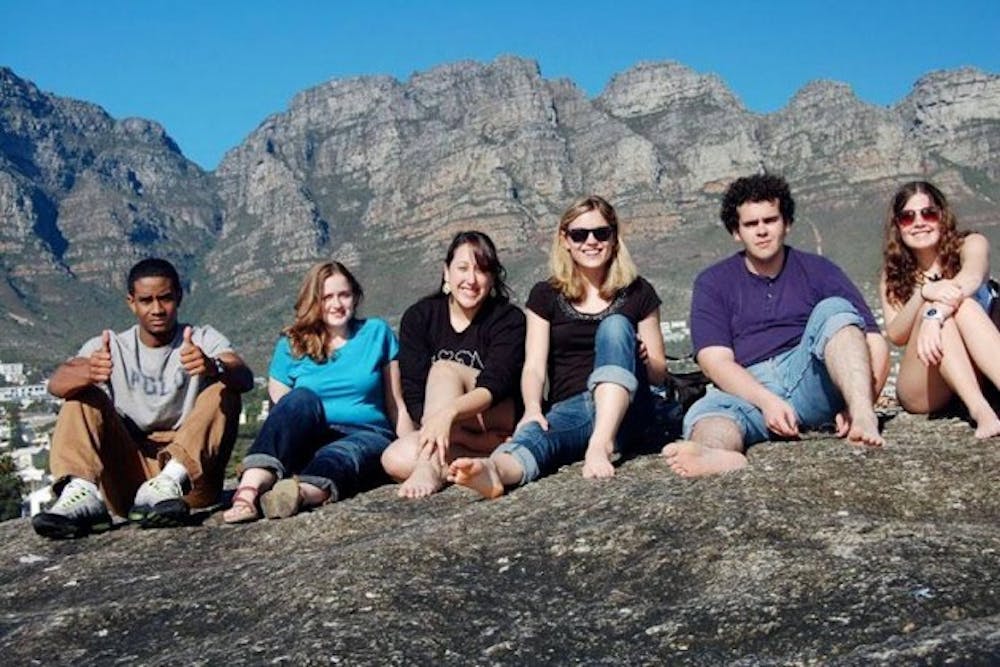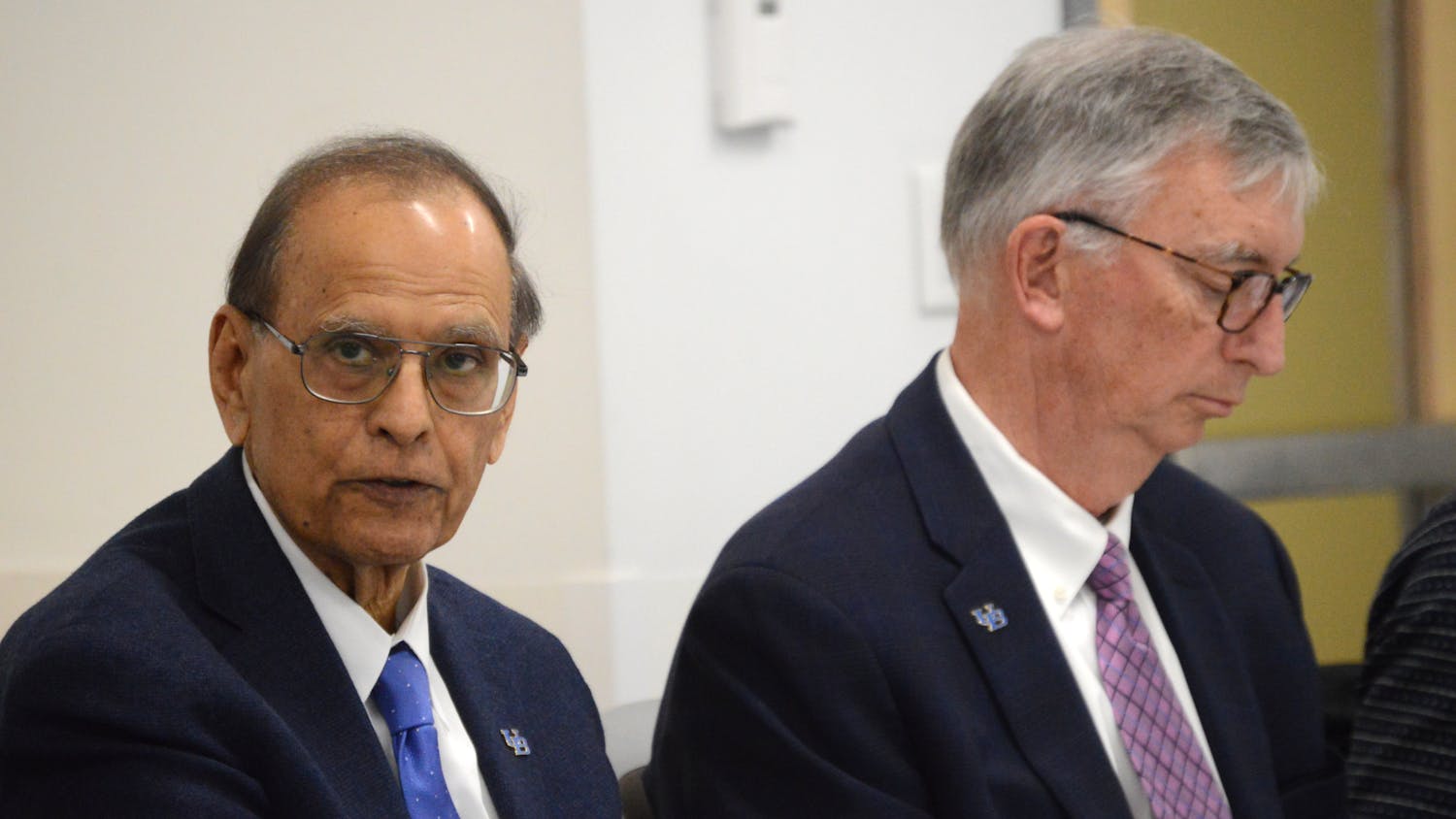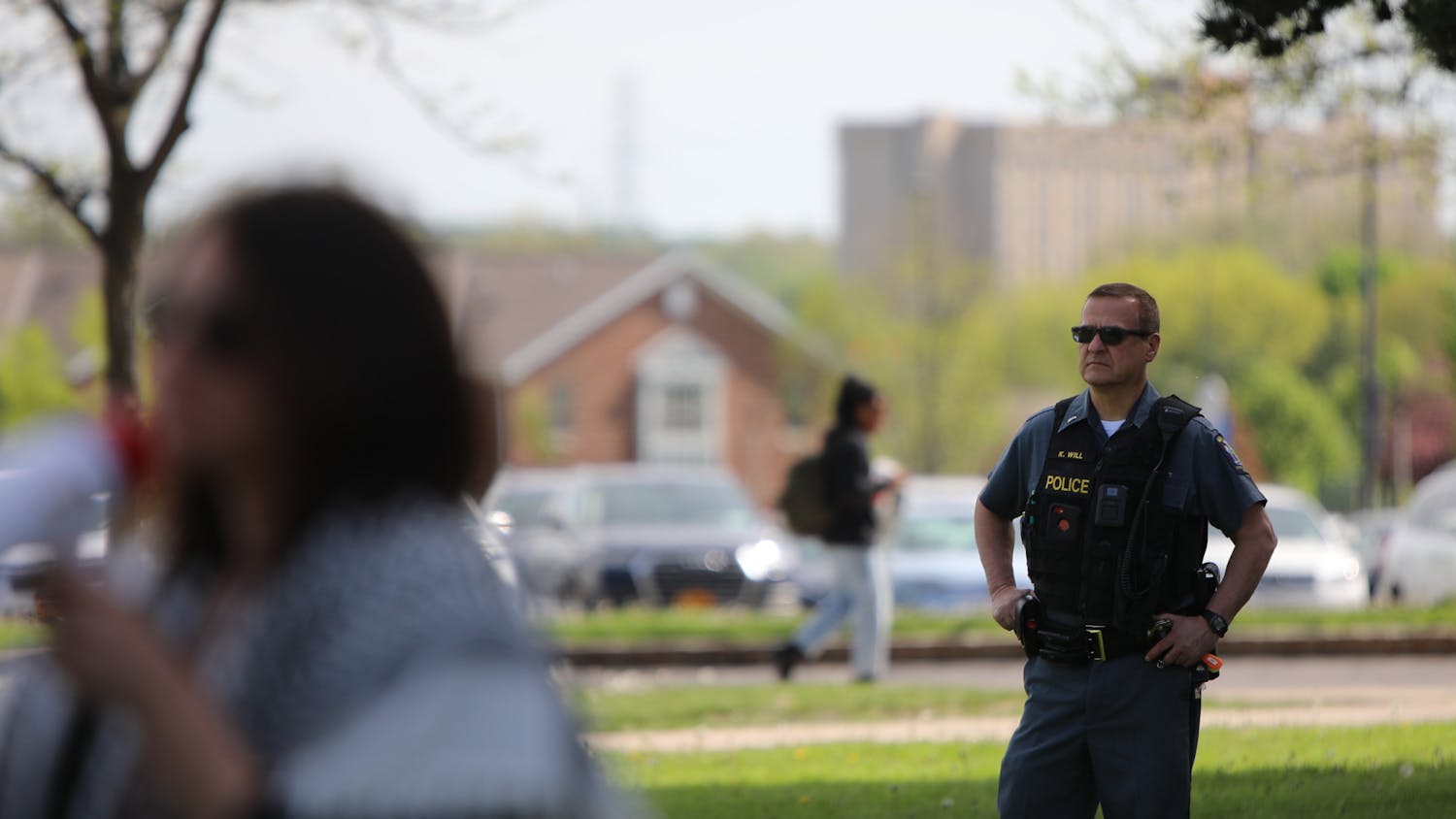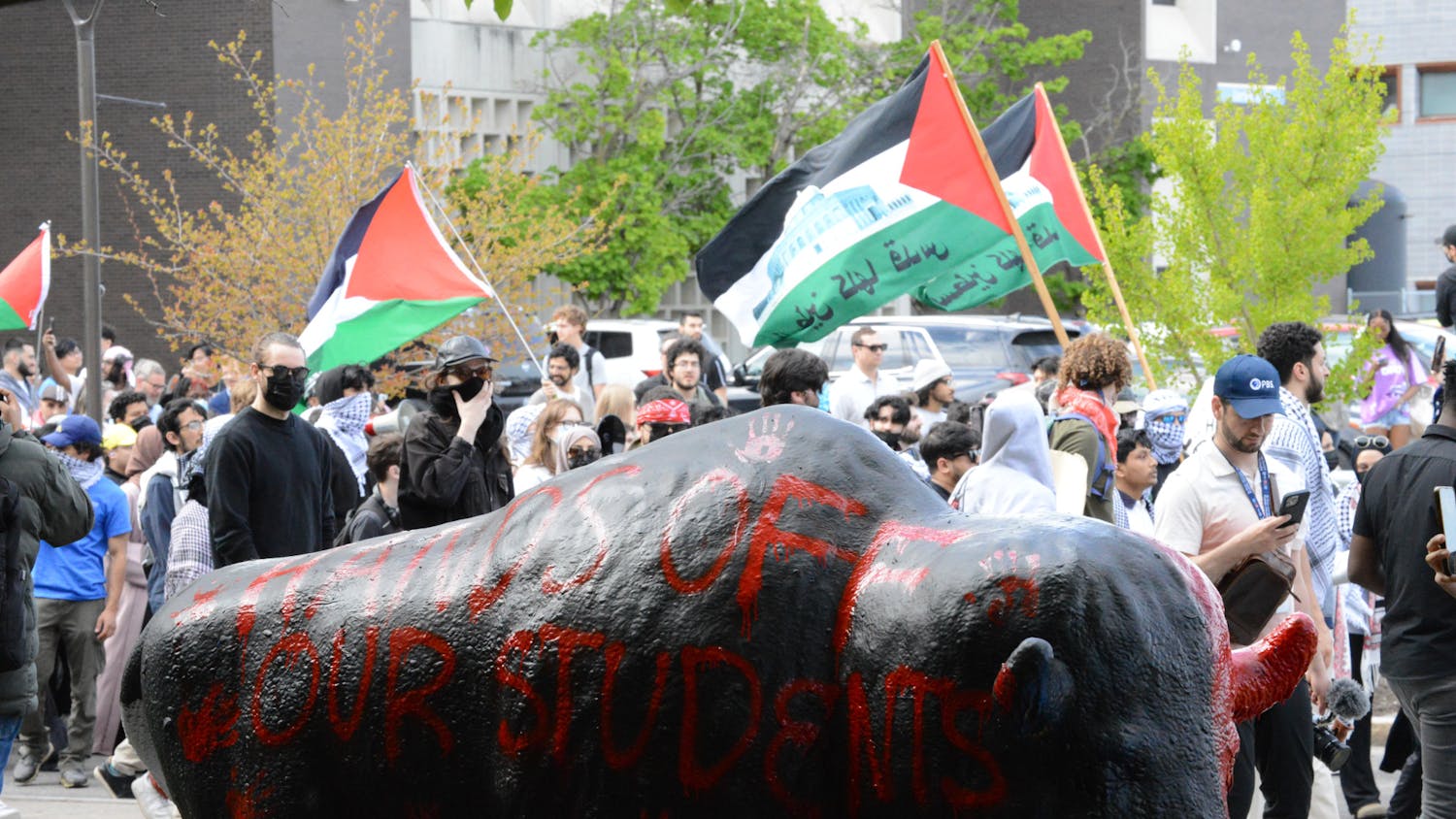UB alumna Erin Willis now understands that "Africa is not this unsafe, unorganized jungle."
She attributes her new outlook to the African study abroad program at UB.
"It allows students to become more aware of their privilege and also allows them to live in solidarity with populations that are depicted as backwards," she said.
Since her trip to Africa, she has gone on to visit Turkey, Jordan, Palestine and other countries. She has worked in Bourj al Barajneh, a Palestinian refugee camp, made presentations about human rights issues in Africa and Lebanon while traveling in the Middle East and led a group of undergraduates to El Salvador to look at the role the United States played in the civil war there.
"My study abroad experience definitely infected me with the travel bug," Willis said.
The South Africa & Rwanda: Political History & Contemporary Culture program helped ignite this "travel bug." The study abroad program to South Africa has been offered since 2001.
This summer, Shaun Irlam, the department chair of comparative literature, will instruct his annual study abroad program in South Africa and Rwanda in light of the 20th anniversary of the Rwandan genocide and the inauguration of Nelson Mandela.
The 2014 program will run from May 16 through July 1, making stops in South Africa, Nairobi, Rwanda, Burundi and Johannesburg. The cost, which covers airfare, tuition, accommodations, transportation and field trips, is around $6,800 excluding meals and personal expenses. Applications closed March 15.
The program pays tribute to Mandela and draws attention to his prisoner number 466; students visit four countries throughout the six-week trip and earn six academic credits. The two courses offered in the program are "Political History of South Africa" and "RWANDA: Rebirth of a Nation."
Field trips include visits to local townships, a baby elephant orphanage and Mandela's prison cell from his political incarceration.
"To some level, my [objective] is to be an ambassador for Africa and to turn students into ambassadors for Africa when they come home," Irlam said.
He wants his students to be able to spread the word that Africa is a wonderful continent and "not the scary place of civil war and disease you read about in the news."
Irlam, who grew up in Cape Town, stated that many parents have concerns about the safety of traveling to Africa, specifically Rwanda, after its history with genocide. He addresses this misconception by saying it is actually the safest country of the four they visit, even though the other destinations are nothing to worry about.
"They're no less safe than any major American city where you've got vast socio-economic differences," Irlam said.
So far, the trips to Africa have had a perfect safety record, according to Irlam.
"Americans' perception of what African countries are like is very skewed and very misguided," said Ryan Latulipe, a UB alumnus and past participant.
Latulipe said each country he visited was extremely different from the others and Africa was not how he expected it would be.
"I do want to introduce students to the complexity of Africa to open their awareness to what a vast continent this actually is," Irlam said.
Irlam said there are cities that resemble San Francisco and Miami and there are villages where residents live in mud huts. But what holds true throughout his visits is the extraordinary sense of hospitality and warmth from the people.
"The people are very friendly and very curious," he said. "They're as interested in us as we are in them."
Irlam said aside from the program's ability to open students' eyes to Africa in ways they wouldn't have imagined, it has also resulted in career choices, shifts in majors and life changes.
A past student met her husband in Senegal. Another went back to South Africa to do two years with the Peace Corps, and one joined the American Foreign Service Association, moved to Egypt to learn Arabic and had his first posting in Yemen.
"They can expect to have their lives altered by this trip because they usually do," Irlam said.
UB offers a total of 68 study abroad programs throughout the year.
email: news@ubspectrum.com





